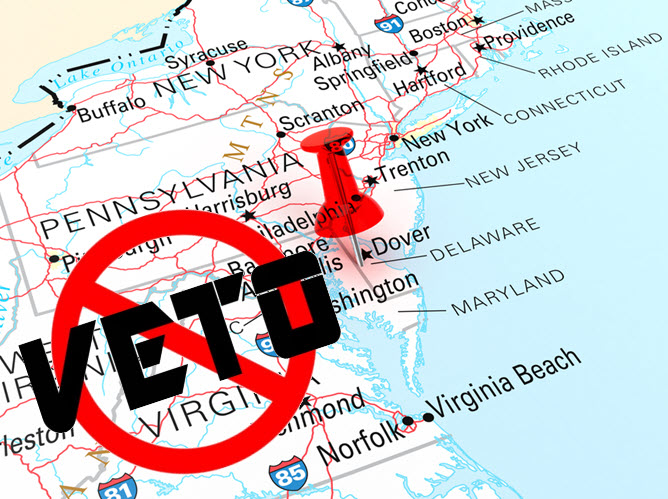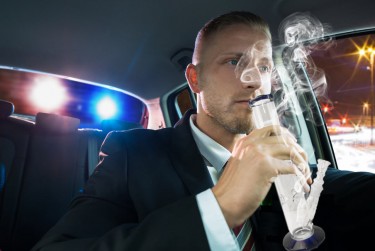
Why Did the Democratic Gov. of Delaware Veto the Cannabis Legalization Act?
On May 23, 2022, the Delaware governor said he had rejected a bill legalizing cannabis.
This was not surprising as Governor John Carney has always made his stance on cannabis clear, even when acceptance within his party is at an all-time high. However, proponents hoped that he would at least sanction simple regulations to allow recreational use and possession of cannabis.
In a press statement, the governor reiterated that he supports people who have access to cannabis for medicinal purposes. He is also not opposed to the private use of cannabis in small quantities and he strongly believes that people should not be jailed just for cannabis possession. But he believes current policies still serve Delaware well and the state shouldn’t go beyond that.
The governor claimed he didn’t believe expanding and promoting recreational cannabis use was best for the state, particularly among young adults. He believes that questions about the economic impact and long-term health effects of recreational cannabis use, including law enforcement concerns, remain unresolved.
Given the state of play, there is still a chance that the governor’s veto will be overridden. Bill HB 371, vetoed by the governor, was approved by Rep. Ed Osienski and currently has the support of over three-fifths of lawmakers in both houses. That level of support is more than enough to overrule the governor’s decision.
According to the governor, he respects the role of the legislature in this situation and is aware that some may have opposing views of him. But he reiterated that his position on legalizing cannabis in the state was pretty clear even before he became governor.
Osienski also signed a related bill to establish regulations for the adult marijuana market. The bill also passed through the committee along with HB 371, but the bill was easily defeated on a single vote. Osienski performed a procedural maneuver that could result in the bill being re-routed for further voting by the committee. In this case, there is a high probability that the bill will pass, considering that a supporter was not present at the previous appeal.
In response to the veto, Osienski reiterated that over 60% of Delawareans fully support the legalization of cannabis for adult recreational use. He added that in early May, the General Assembly supported and voted against banning the possession of cannabis for personal use by 60%.
He added that despite this support, the governor decided to veto HB 371 to sideline the will of the Delawareans. Osienski said he was very disappointed with the governor’s decision, especially given that the law could have gone into effect without his signature. This would have protected the will of legislators and residents, as well as the governor’s opposition. Osienski then concluded that he must review the situation and propose the next course of action.
According to Osienski, vetoing the law will not prevent citizens from buying and consuming cannabis. The veto will only criminalize the action. He believes enough examples like New Jersey have been set of how this new industry can generate revenue and create jobs. In New Jersey, cannabis sales reached nearly $2 million on the first day of legalization. Until such a market is established in Delaware, citizens will buy cannabis illegally either on the black market or in New Jersey.
Osienski made a wise decision to split the action, as early proposals combining both parts failed to garner much-needed domestic support. Since the Simple Possessions Act was not about raising revenue, it required only a simple majority, but eventually garnered strong support from both chambers.
The governor reiterated in his initial comments on legalization that cannabis use should not be criminalized, but he still has some concerns about policy changes. However, he did not comment on where he would or would not sign the bill.
One of the Marijuana Policy Project’s senior policy analysts, Olivia Naugle, defined the veto as a grave injustice in a press release. She claimed the crucial legislation would help significantly reduce police interactions, subpoenas and searches for cannabis possession within the state. She went on to cite that the reality of cannabis law enforcement is quite unusual and black Delawareans are bearing the brunt of it. They are disproportionately searched and fined for possession or the smell of cannabis.
Here’s what the HB 371 hopes to achieve;
The bill would overhaul the state’s laws by removing penalties for possession of an ounce of cannabis by adults over the age of 21.
The bill would also create a new section that would state that adults 21 and older can share a maximum of one ounce of marijuana without compensation. The section explains that cannabis could not be gifted as a contemporary two-way transition.
It should be noted that Pete Schwartzkopf was the only Democratic speaker in the Delaware House to vote against the original voluminous bill. However, he has motions that he could be asked to support a bill that would provide a regulatory infrastructure for commerce if the changer supports the legalization of parts and possessions. Although he voted against the bill early last month, he voted for the sales bill late last month.
Currently, possession of cannabis up to a limit of one ounce is decriminalized within the state. However, under the law passed in 2015, it is punishable by a fine without the threat of jail time. In 2019, the governor also signed legislation that expanded the policy to include those under the age of 21. However, they face serious consequences if they do it again.
Conclusion
The governor has always made his stance on the legalization of cannabis clear. He believes cannabis is a gateway drug to other hard drugs, which is why he opposes its legalization. He claimed that a lot of money, time and effort had been expended to discourage people from using marijuana and now there had been a sudden turn that it was now okay to smoke it. He doesn’t think that’s a good idea. He mentions his assessment of other states and claims that enacting a cannabis organization does not look like a positive thing. But is it the worst thing in the world? Of course not, he doesn’t think so.
DELAWARE’S ROAD TO LEGALIZATION, READ MORE…

MARIJUANA SMELL DURING A TRAFFIC STATION – RULES OF THE DELAWARE SUPERIOR COURT!

Post a comment: